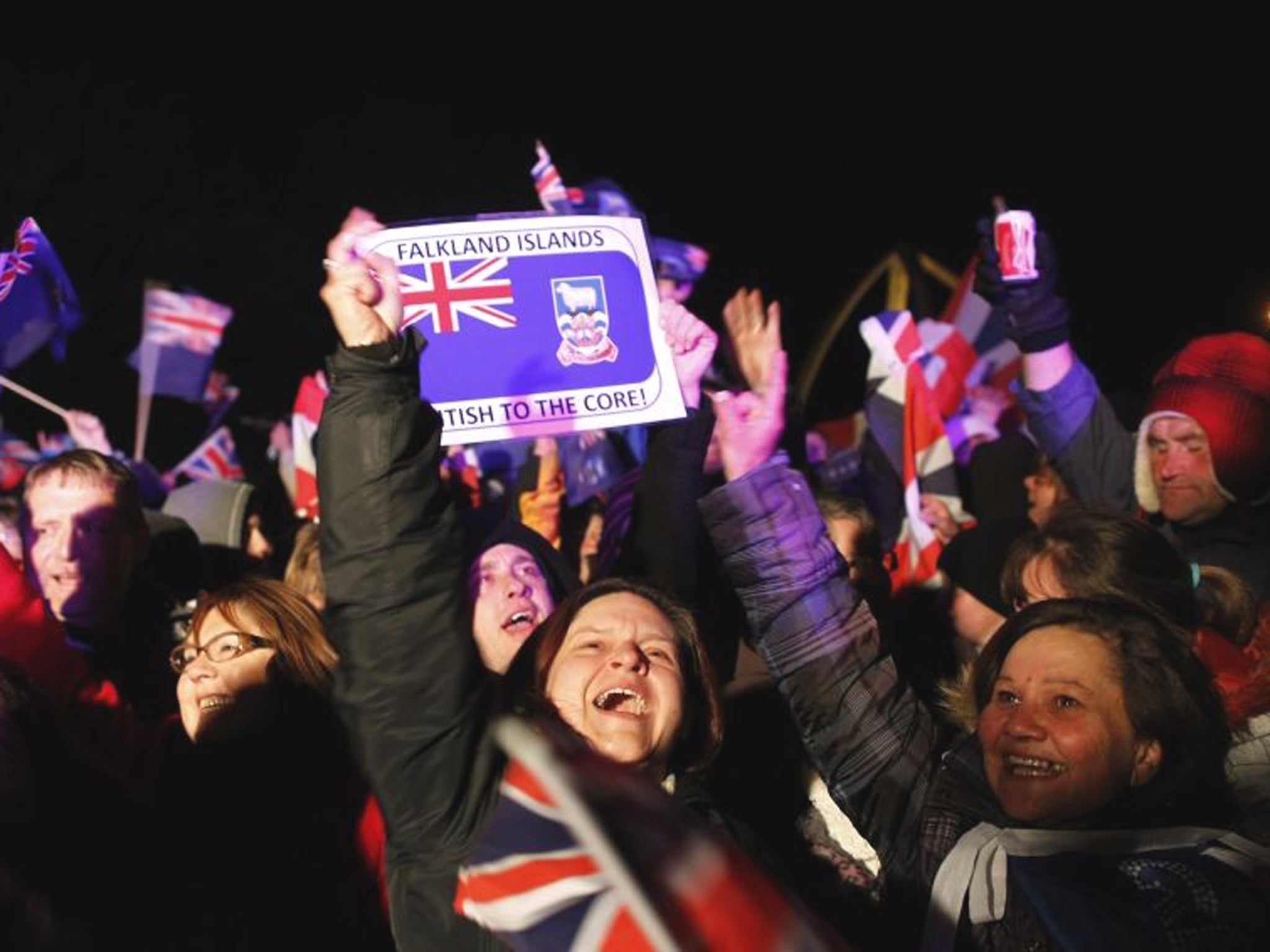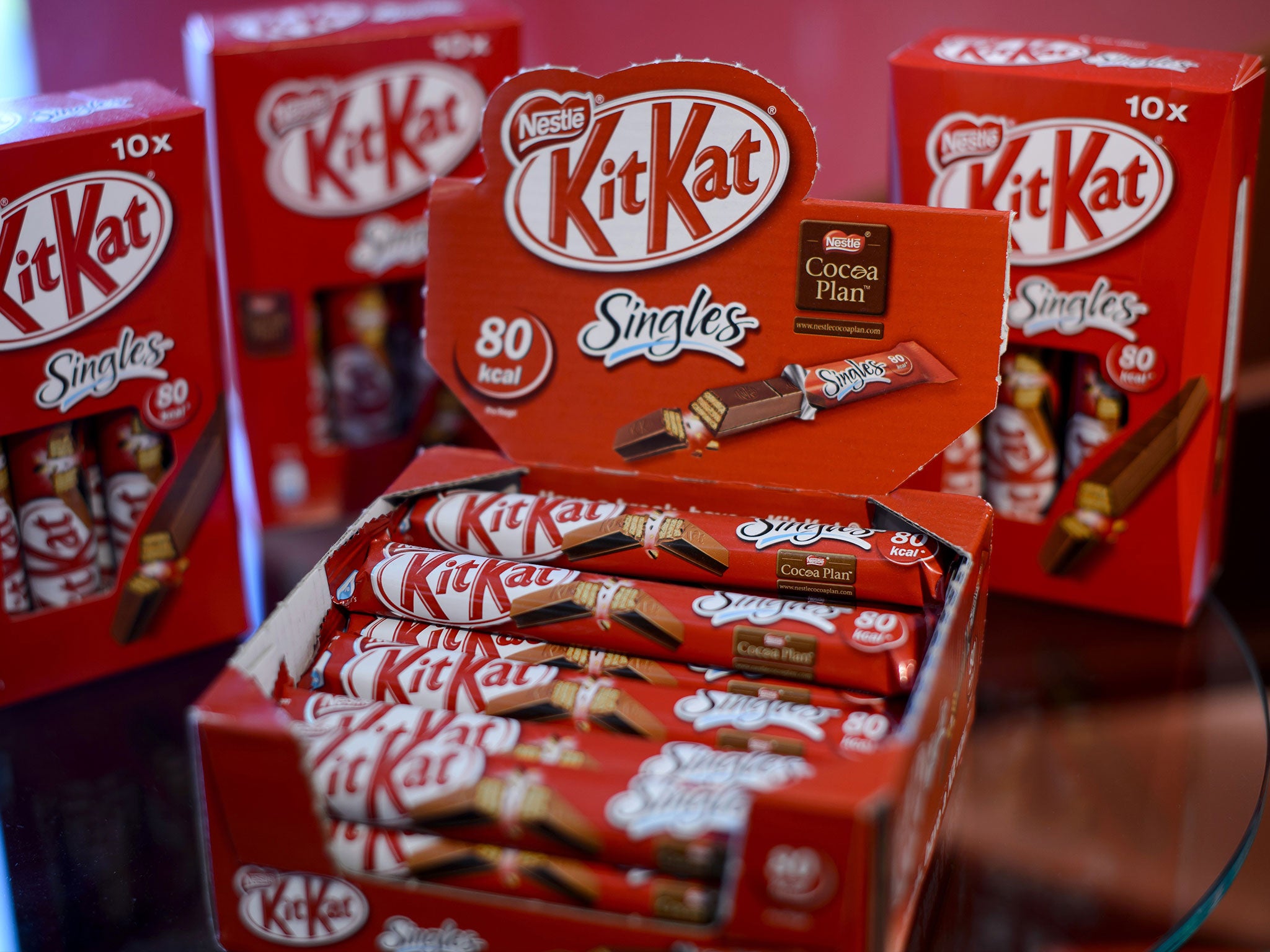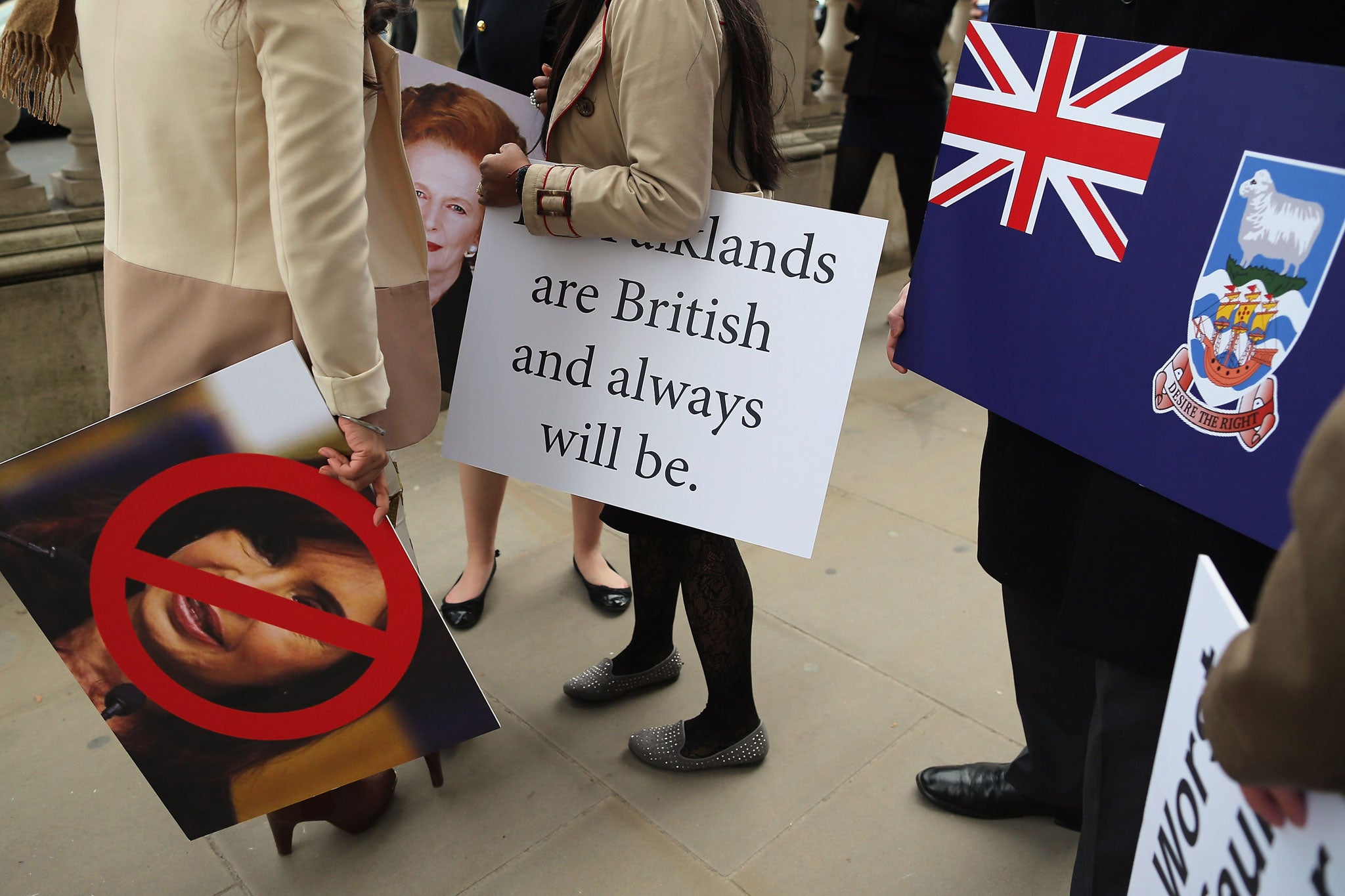'Crimea has more reason to be Russian than Falklands to be British,' says Russian politician
Alexei Pushkov told the UK government to 'have a break, have a Twix'

Your support helps us to tell the story
From reproductive rights to climate change to Big Tech, The Independent is on the ground when the story is developing. Whether it's investigating the financials of Elon Musk's pro-Trump PAC or producing our latest documentary, 'The A Word', which shines a light on the American women fighting for reproductive rights, we know how important it is to parse out the facts from the messaging.
At such a critical moment in US history, we need reporters on the ground. Your donation allows us to keep sending journalists to speak to both sides of the story.
The Independent is trusted by Americans across the entire political spectrum. And unlike many other quality news outlets, we choose not to lock Americans out of our reporting and analysis with paywalls. We believe quality journalism should be available to everyone, paid for by those who can afford it.
Your support makes all the difference.A senior Russian politician has told Britain to “have a break, have a Twix” over Vladimir Putin’s annexation of Crimea.
Alexei Pushkov, head of the Russian parliament’s Foreign Affairs Committee, made the jibe on Twitter after Philip Hammond condemned it as a “blatant breach of international law”.
But he appeared to have mixed up his chocolate bars, seemingly using the famous “have a break, have a KitKat” slogan rather than Twix’s accidentally timely line: “Try both and pick a side.”

“Attention London: Crimea has far more reason to be in Russia than the Falklands have to be part of Great Britain,” Mr Pushkov wrote on Twitter on Sunday, according to a translation by the Moscow Times.
“London should ‘have a break, have a Twix’. All the Western polls conducted in Crimea show the absolute majority of Crimean people are for reunification with Russia.”
He was reacting to a statement by the Foreign Secretary marking a year since President Putin signed the decree confirming the annexation of Crimea as the Ukrainian conflict raged.
Mr Hammond condemned the move as a “blatant breach of international law”.
“It showed total disregard for Ukraine’s right to sovereignty and territorial integrity, and I condemn it in the strongest terms,” he added.
“It is completely unacceptable for Russia to use force to change borders.
“We do not recognise last year’s sham referendum which President Putin has admitted was planned to provide a fig leaf for his land grab.”
Elections in Crimea supporting the Russian annexation and in separatist-controlled eastern Ukraine voting in rebel rulers have been denounced by the Ukrainian government and the West.
But Russia backed the supposed landslide victories as a free and fair vote of confidence in areas dominated by Russian speakers.
Mr Hammond called the Crimean referendum a “sham” mounted in 20 days to legitimise the land grab under the supervision of armed pro-Russian troops.
“Opposition media was shut off before the vote, there were no Organisation for Security and Co-operation in Europe (OSCE) monitors and the referendum was declared illegal and illegitimate by the OSCE and G7 nations shortly after it took place,” he said.
“Since the illegal annexation, political freedom has reduced, and those who have dared to speak out have been threatened and subjected to violence.
“Human rights abuses in Crimea are particularly affecting ethnic minorities, with over 100 raids on Crimean Tatar homes reported since the annexation.”
Parallels to Britain’s claim over the Falklands have been drawn before. Shortly after the annexation of Crimea, Argentinian President Cristina Kirchner claimed it was no more acceptable than Britain's hold on the islands.
“The Malvinas (Falklands) have always belonged to Argentina,” she said.
“Crimea once belonged to the Soviet Union and was then given by (former Soviet leader Nikita) Khrushchev to the Ukrainians.”
Argentina maintains its claim to the Falkland Islands, which lie 310 miles off its coast in the South Atlantic, but they have remained British since 1833.
The Argentinian invasion in 1982 sparked the Falkands War, which killed more than 900 people.
Inhabitants of the islands voted overwhelmingly, by 1,513 to three votes, for it to remain a British overseas territory in a 2013 referendum but some Argentinian politicians said self-determination was irrelevant.

Ballots cast in the Donetsk and Luhansk provinces of Ukraine in May showed similar results, with 89 per cent and 96 per cent of voters backing independence from Kiev respectively.
In Crimea, the result of its vote in March claimed 95 per cent of voters supported joining Russia but the EU said the referendum was “illegal and illegitimate and its outcome will not be recognised”.
“Our message to Russia is consistent and clear,” Mr Hammond said.
“The annexation of Crimea was illegal and illegitimate in March 2014, and remains illegal and illegitimate in March 2015. Russia must return Crimea to Ukraine.”
Join our commenting forum
Join thought-provoking conversations, follow other Independent readers and see their replies
0Comments